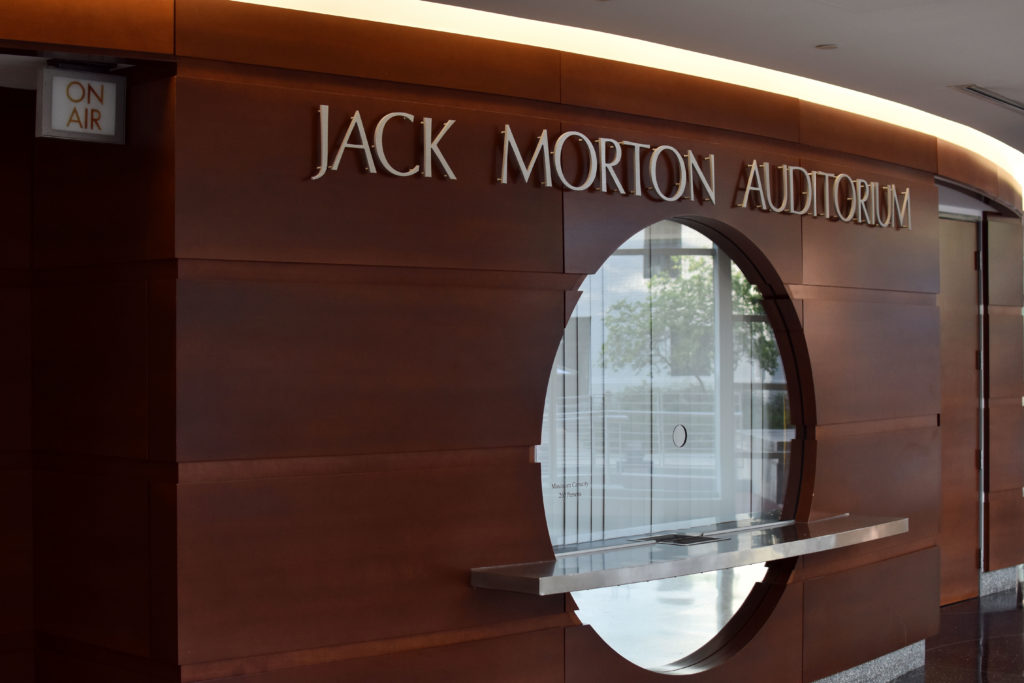The School of Medicine and Health Sciences will co-host its first conference with the American Association of Kidney Patients for researchers to present developments in kidney disease treatment.
Kidney care experts at the three-day event, held in the Jack Morton Auditorium from May 21 to 23, will discuss new approaches to detecting and treating kidney disease at panel discussions and networking sessions. Faculty and kidney care experts said the conference will help kidney care specialists develop methods for preventing and treating kidney disease.
Dominic Raj, the director of the division of renal diseases and hypertension at GW and a co-chair of the conference, said the conference will unite kidney care experts to discuss new approaches to detection and treatment of kidney disease.
“Here, we break barriers in advancing kidney care,” Raj said in an email.
The event will include 10 panel discussions, focusing on topics like kidney transplantation techniques, improvements to dialysis therapy – a treatment that extracts excess waste, salt and water from blood – and improving kidney patients’ quality of life.
Raj said the conference will host several international kidney care experts from six countries – the United States, the United Kingdom, Brazil, Canada, Italy and Sweden – bringing attention to the fact that chronic kidney disease affects 850 million people worldwide.
“This conference was conceived with the aim of highlighting the epidemic of chronic kidney disease across the world and to bring stakeholders, patients, providers, scientists, policy makers, National Institutes of Health and industry to come together to address this issue,” he said.
The cost of attendance is free for medical students and kidney patients and caregivers, according to the AAKP website. Registration costs are $100 for members of “allied” nonprofit organizations, $125 for AAKP fellows, nurse practitioners, physician assistants and doctors of philosophy, $250 for practicing nephrologists and $350 for pharmaceutical industry representatives.
Raj added that he hopes to hold the conference annually.
Paul Conway, the AAKP Chair of Policy and Global Affairs and a co-chair of the conference, said the conference’s main goals are to “highlight” innovations in the field of kidney care, emphasize patient-centered approaches to kidney treatment and solidify the University’s reputation as a leader in nephrology – the study of kidneys.
“It’s rare that you get a conference of this magnitude on the campus in Washington, D.C. at an elite university – that usually doesn’t happen,” he said. “It’s great news because it’s a combination of both academic research and practical application.”
Conway added that kidney care experts attending the conference will develop and alter kidney treatment methods to allow patients to live normal lives, like administering dialysis treatment at home instead of in a hospital, to allow patients with chronic kidney disease to continue working.
“Another area of great innovation is medical devices,” Conway said. “If somebody is on dialysis, it will better enable them to do dialysis at home, to do kidney treatment remotely, to stay engaged in the workforce, to pursue human aspirations instead of being in a transplant center three times a week and reboot from their friends, family and workplace.”
Kidney care experts said the conference will facilitate conversations about new methods of kidney disease detection and treatment.
Susie Lew, a professor of medicine who will attend the conference, said the meeting can provide an opportunity for kidney care experts to initiate projects to improve approaches to kidney disease treatment.
“Many national and international thought leaders will be gathered in one area to talk about kidney disease,” she said in an email. “It will be an opportunity to share ideas, come to consensus and perhaps spark a project to move treatment of chronic kidney disease a step further.”
Lew added that the conference will inform attendees of the latest advances in kidney care research and policy.
“The attendee will hear cutting edge information and what’s in the forefront of research, innovation, and policy,” she said.
Nancy Uhland, a nurse practitioner with the GW Medical Faculty Associates who is attending the conference, said in an email that the conference is “unique” because it is designed to be collaborative with other experts in the field. She said opportunities for kidney care experts to work together will result in better health outcomes for people who suffer from chronic kidney disease.
“You will be witnessing a conference celebrating and advocating for advancements in patient care by bringing together the world’s most powerful voices in kidney health,” Uhland said in an email. “I trust we will all leave the conference more inspired to lead the world in transformative ways to care for the kidney patient population.”





